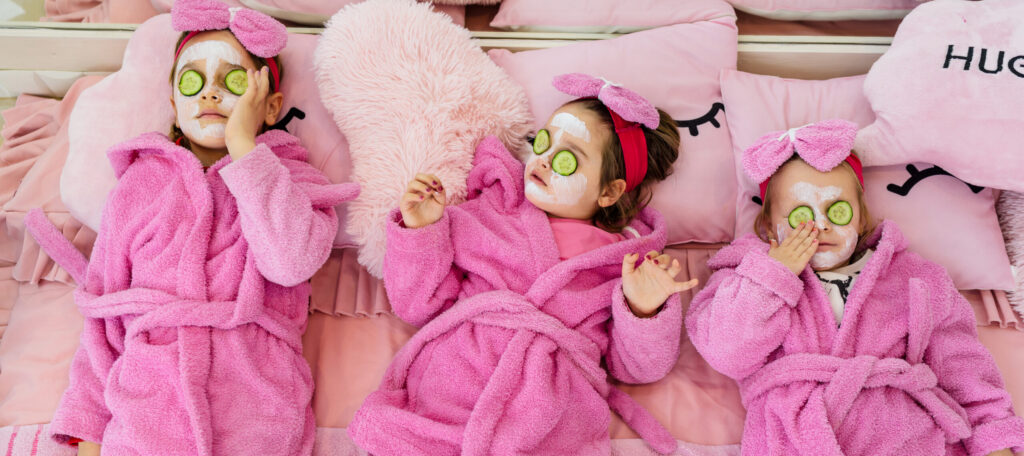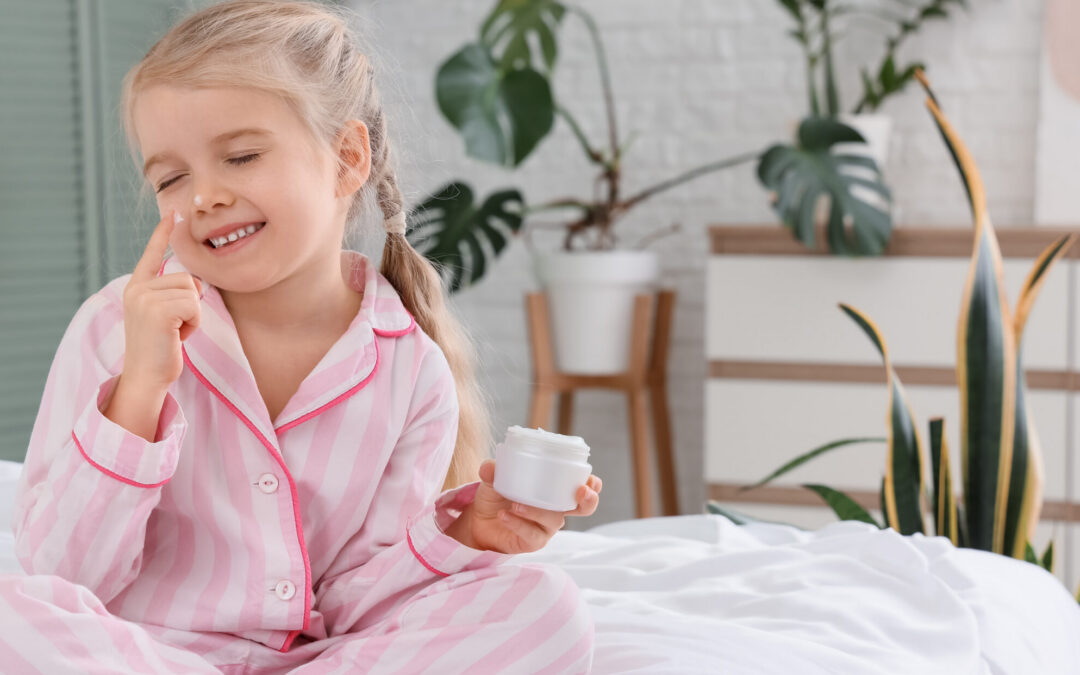Shay Mitchell thought she was solving a problem when she launched Rini, a skincare line designed for children as young as three years old. Instead, she walked straight into a firestorm. The Pretty Little Liars actress debuted her brand with hydrogel face masks featuring puppy, unicorn, and panda designs, marketed as a way for kids to bond with parents over self-care routines.
Within hours, Mitchell’s Instagram was flooded with comments calling the launch “dystopian,” “tone deaf,” and “wrong on so many levels.” One commenter captured the sentiment perfectly… “Call me crazy, but the only thing we should be putting on kids’ faces is sunscreen.”
This Comes at the Absolute Worst Time
The beauty industry just spent most of 2024 grappling with the “Sephora kids” phenomenon, where tweens flooded stores buying $60 retinol serums and harsh products designed for aging adult skin. Social media exploded with videos of 10-year-olds requesting $900 worth of Drunk Elephant products, dermatologists issuing warnings about chemical burns, and brands telling children not to buy their products.
So when Mitchell announced a brand specifically targeting toddlers, critics pointed out that instead of addressing the problematic aspects of kids’ beauty obsession, Rini seemed to be lowering the age of entry from tweens all the way down to preschoolers.
What Dermatologists Actually Think

The medical community isn’t mincing words. Dr. Rosemarie Ingleton, a board-certified dermatologist, told Today that at age three, “the only thing I think we should be considering is getting them into a little habit of being clean and just hygienic.” Children don’t need preventative skincare until puberty, when their skin actually changes.
When you market face masks to toddlers, you’re teaching them that their naturally perfect skin needs correction. Their skin barriers are still developing, making them more prone to irritation from products they don’t need.
The basics for kids remain unchanged across all expert opinions. Gentle cleanser, simple moisturizer if needed, and broad-spectrum sunscreen. That’s it.
The Defense That’s Not Landing
Mitchell insists her intentions are pure. “Rini isn’t about beauty, it’s about self-care,” she wrote. “About teaching our kids that taking care of themselves can be fun, gentle, and safe.” The products are dermatologist-tested, made in South Korea with pediatric chemists, and meet stringent EU safety standards.
Co-founder Esther Song added that it’s “about nurturing their imagination and confidence.” They positioned the brand as a solution for parents whose kids want to mimic their routines.
But here’s where the argument falls apart. As one Instagram user pointed out, “Just because they want to ‘do what mummy does’ doesn’t mean they should.” Kids also want to drive cars and stay up until midnight. Parenting includes saying no to things that aren’t age-appropriate, even when they’re technically safe.
Why This Goes Beyond Just One Brand

Gen Alpha, the first generation to grow up entirely in the digital world, is being shaped by beauty standards at unprecedented ages. Eighty percent of girls in the UK have used filters or edited photos before turning 13. In 2023, kids aged 6-12 spent nearly $4.7 billion on beauty products.
The playground status symbol used to be the coolest lunchbox or newest action figure. Now it’s owning viral high-end beauty products, creating a culture where children as young as eight feel pressure about their appearance.
The Bigger Picture No One Wants to Face
Perhaps the most damning aspect is what this reveals about celebrity brands and capitalism. As one TikTok creator noted, Mitchell wanted to launch a skincare brand. “There are a few too many of those… you know what there aren’t few too many of? Celebrity skincare brands for children.” This exists not because children need it, but because it’s an untapped market.
Gen Alpha represents the fastest-growing consumer segment. Brands see opportunity. And somewhere in the middle are children learning that their worth might be tied to products, routines, and appearance maintenance.
Even the brand name sparked controversy. While Rini claims the word means “children” in Korean, South Korea’s National Human Rights Commission has identified it as potentially derogatory, ruling against its use in official spaces.
Will Rini succeed? Maybe. But the overwhelming response suggests most people recognize this for what it is… a solution looking for a problem, arriving at exactly the wrong cultural moment.
Toddlers don’t need skincare routines. They need to be kids.

